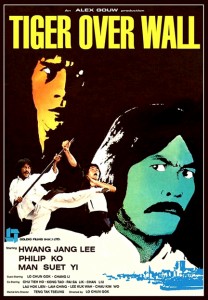
“Tiger Over Wall” Theatrical Poster
Director: Tony Liu Jun Guk
Producer: Alex Gouw
Cast: Philip Ko Fei, Kong Do, Chu Tiet Wo, Hwang Jang Lee, Cheung Lik, Candy Wen, Chan Lau
Running Time: 91 min.
By Paul Bramhall
There’s a certain familiarity to watching an old school kung fu movie, in that you tend to know exactly what you’re going to get. A villain has killed a teacher, and the student vows to get revenge. A villain has killed a family member, and the surviving relative vows to get revenge. A villain has killed someone who has a loose connection to someone else, and that someone else vows to get revenge. It’s a tried and tested formula, and the rule of thumb seems to be that as long as we get a healthy dose of exciting fight action, the sub-standard plots can be forgiven.
So with Tiger Over Wall, apart from having a title which resembles a grammatical car crash, it’s refreshing to get a plot which takes a different approach from the norm. As the bombastic music plays over the opening credits, you can’t help but also notice the sound of a dog barking in what sounds like an empty room, which has been mixed over the music at equal volume. It’s quite jarring. This however is the closest we get to a dog for the rest of the movie, as proceedings open on a middle aged British diplomat and his Chinese mistress realizing that their treasured boxer dog, Rover, has gone missing.
Soon enough they’re questioning the nearest passerby to see if they’ve seen the precious Rover, and when the poor sap reveals he hasn’t, he ends up getting beaten by the diplomat, while the mistress cheerfully yells in the background, “That’s right! Beat him! Kick the bastard harder! Kick him ‘till he’s dead! Kick him! Go on!” Things escalate, and within the first 15 minutes, the chief of police – played by Korean kicking legend Hwang Jang Lee – has been called in to try and find the dog, threatening to arrest anyone who doesn’t help with the investigation.
There we have the plot of Tiger Over Wall – the police try to find a white guy’s missing dog. As ridiculous as this may sound, the events are actually based on a true story that took place in Shanghai during 1919. The fact that the dog belonged to a foreign diplomat resulted in the police getting involved, however I’m sure that’s as far as the similarities go.
The movie is directed by Tony Liu Jun Guk, and while his name may not be as familiar as other directors working around the same period, he’s arguably been behind several classic slices of kung fu. Jun Guk hit his stride a few years after making Tiger Over Wall, when while working for the Shaw Brothers studio he made several high energy, slightly off the wall, kung fu movies such as Holy Flame of the Martial World, Bastard Swordsman, and Secret Service of the Imperial Court. As the 90’s beckoned he moved into the Girls with Guns genre, directing a number of Moon Lee starring action fests like Devil Hunters, Dreaming the Reality, and Angel Terminators 2.
Jun Guk enlisted fight choreographer Dang Tak Cheung to stage the action for Tiger Over Wall, and Tak Cheung’s resume makes for just as impressive reading as the director himself. Like Jun Guk, Tak Cheung also liked to work on the slightly more off the wall side of the kung-fu movie world, choreographing the likes of Kung Fu Zombie, and the insane Shaw Brothers production Buddha’s Palm. While working at Shaw Brothers Dak Cheung got the opportunity to have full control on a couple of productions, which led to him directing, writing, and choreographing the late-Shaw era movies Demon of the Lute and Long Road to Gallantry, both of which are personal favorites.
With such talent behind the camera, to really make a great old-school kung-fu movie, you need to have an equal amount of talent in front of it. Thankfully Tiger Over Wall does, who come in the form of Philip Ko, and the previously mentioned Hwang Jang Lee. Both are ably backed up by such familiar old school faces as Kong Do, Chu Tiet Wo, Cheung Lik, and even the director himself shows up as an assassin for hire. Both Philip Ko and Hwang Jang Lee have so many classics between them that it would be impossible to do them justice in just a few lines. Ko, arguably the master of the ‘shapes’ style of choreography, was on fire in 1980, also starring in The Loot and Snake Deadly Act to name but a couple, while Hwang, often referred to as the king of leg fighters, also cranked out classics like The Buddha Assassinator and Challenge of the Tiger in the same year.
In an era where we’re happy just to have one good kung fu movie a year, it’s easy to forget that in the golden era we had several stars making several movies every year, year in year out. It’s a time that will likely never be rivaled in terms of productivity and output, but at least it leaves us with plenty to choose from. In Tiger Over Wall Ko plays the guy who has to see not only his girlfriend’s poor family, but also his teacher, end up getting roped into taking the fall for the missing dog, under false promises of money or business permits. As he’s forced to watch his nearest and dearest be lied to, beaten up, and tortured, things begin to boil over until he can’t take anymore, and he begins to bust out the moves that we’ve all been waiting for.
It’s worth noting that Tiger Over Wall certainly doesn’t rush its fight scenes. Indeed for the first 50 minutes, with the exception of a few brief scuffles by Ko and the constant threat of violence, there’s actually no substantial fight action. Thankfully the hilarious English dub more than makes up for it, providing plenty of unintentional laughs as Hwang Jang Lee storms into various establishments yelling “WHERE’S THE BOXER DOG!?” The absurdity of it never wears off, and keeps proceedings moving along nicely. However at the 50 minute mark Ko gets to explode, taking on Kong Do in an awesome shapes fest involving fists, feet, and a pair of umbrellas. It’s fast, fluid, and sets off a buildup of action which doesn’t stop until the credits roll.
While you’ll often see discussions which talk about how great it would be if certain stars of the old school era had faced off against each other but never did, movies like Tiger Over Wall make you thankful that a movie exists in which, yes, kung fu legends like Philip Ko and Hwang Jang Lee actually do get to face off against each other. And for those who are worried, don’t be, it doesn’t fail to impress. The finale is lengthy and exhausting, as the pair start off with Ko armed with a staff and Hwang armed with a guandao, before segueing into an empty handed showdown of tiger claw versus mantis fist. There’s a part when the two opponents briefly move their fight indoors, and you’d swear Hwang had never learnt to tame his kicks for screen fighting, as every one of them looks like if it made contact it would take Ko’s head off.
What’s so great about Ko and Hwang is that they not only had the moves, but they also had an intensity behind them. When they fight it doesn’t just look like they’re performing finely tuned choreography to perfection, it looks like they really want to kill each other. These guys could perform intricate displays of choreography, and act at the same time, and that’s talent. By the time they’re through with each other, I can guarantee that you’ll have completely forgotten about wondering what became of Rover the boxer dog, which is just as well, as it appears the director did as well.
Paul Bramhall’s Rating: 8/10
Full disclosure: I watched Tiger Over Wall as part of the Brooklyn Zu Vol. 1 9-Movie set which was released by US based label Ground Zero in 2004. The movie was released in the UK by the now defunct Vengeance Video label in 2006 in its original Mandarin language with burnt-in English subtitles, and claims to be fully uncut. While there are no obvious cuts in the Brooklyn Zu version, I have seen discussion in which people talk about a character being on the receiving end of a 360 degree neck snap, which I’m sure wasn’t in the version I saw. On a note of personal preference, I would have to say that I wouldn’t have enjoyed the movie half as much had it not had the English dub, which offers many moments of unintentional hilarity that I’m sure wouldn’t be found with the original audio.

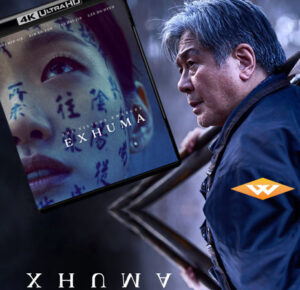
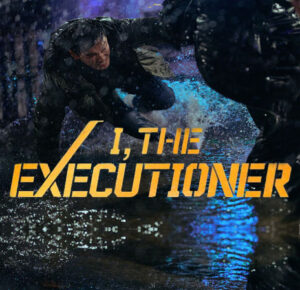
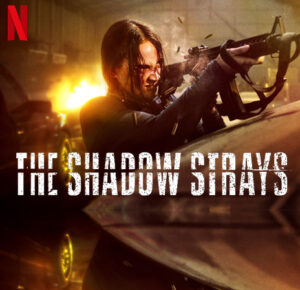
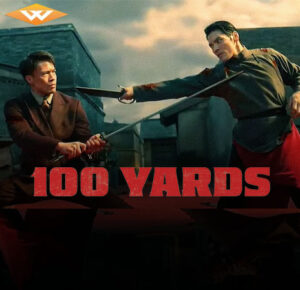













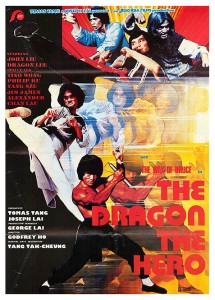
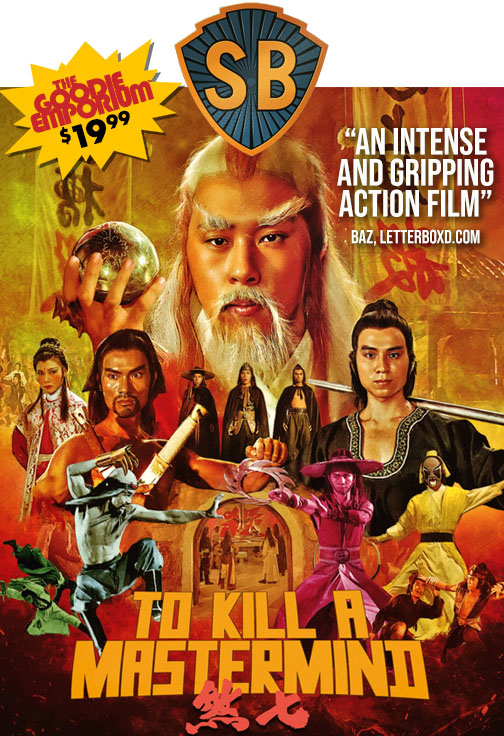



Be the 1st to Comment